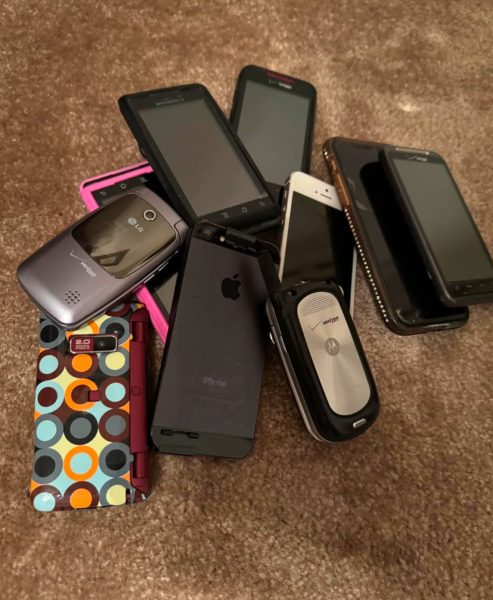The D.C. City Council introduced new legislation Jan. 27 to prohibit personal cell phone and wireless device use during the school day in D.C. schools.
Ward 2 Councilmember Brooke Pinto (LAW ’17) proposed the “Heads Up! Distraction-Free Learning Amendment Act of 2025,” which would compel D.C. public schools to adopt a policy prohibiting students from using any personal wireless communication device during school hours, including cell phones, smartwatches and gaming devices. Students would still be permitted to bring devices to school.
In a press release, Pinto said the act will ensure that D.C. schools are distraction-free learning environments.
“We must remain focused on supporting a learning environment in all of our schools that will help our students learn, play, engage, and thrive,” Pinto wrote in the press release. “The purpose of the proposal is to reduce distractions for students in the classroom and enhance their learning experience.”

According to the bill proposal, in the 2023-24 school year, only 34% of District students met or exceeded expectations in English language arts and literacy and 22.8% met or exceeded expectations in math.
William McCall (CAS ’25), a Georgetown student pursuing a career in education, said he thinks the bill will help students focus on their education while in school.
“Cell phones are famously distracting and rarely conducive to academic focus,” McCall told The Hoya.
Full disclosure: William McCall (CAS ’25) served as Senior Guide Editor during the Fall 2023 and Spring 2024 semesters.
Naomi Banner (SFS ’27), who has spent the last year tutoring high school students in the D.C. area, said she is concerned by the limitations the bill would place on students’ ability to contact their parents in the case of an emergency.
“If, God forbid, there were to be an emergency in the school such as a school shooting in which parents needed to get in touch with their children directly, they wouldn’t be able to contact each other,” Banner said. “I think the inability of a parent to personally contact students in the case of an emergency is a perfectly valid reason to be concerned about the bill.”
In neighboring Virginia, Governor Glenn Youngkin issued a July 9 executive order instructing state education officials to establish cell-phone-free education policies in schools.
Pinto said her bill will enable students to spend more time interacting with each other and with their teachers rather than on screens.
“Removing distracting devices during the school day will better equip our students to focus, empower our teachers to teach, and ensure that our kids are engaging with one another in person which will benefit them and their outcomes for years to come,” Pinto wrote.
According to the provisions of the bill, students with accommodations to use electronic devices during the school day would be exempt from this ban. Teachers may also make exceptions for students to use devices for educational purposes.
With the support of five other council members, the bill will now face committee review in front of the Committee of the Whole, a council-wide meeting to consider pending legislation.
McCall said the bill will ensure students take their education seriously and encourage active participation.
“The ‘Heads Up!’ bill would make sure students have no choice but to take their studies seriously and remain ‘present’ during school hours,” McCall said. “In turn, this will encourage classroom participation, which will have a cascading effect on other students’ engagement.”